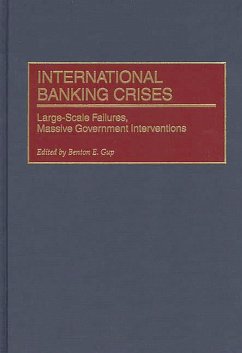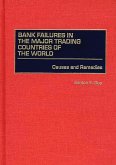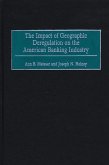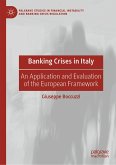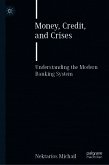The financial crises that began unexpectedly in Southeast Asia in 1997 spread rapidly around the globe, causing banks to fail, stock markets to plummet, and other newsmaking disruptions. Gup and his contributors examine these failures and crises in the main arenas where they occurred-Thailand, Indonesia, South Korea, Russia, Argentina-and provide some important answers to the critical questions these frightening events raised. The result is a readable, easily grasped study of issues relating to bank failure and the effectiveness of bank regulation, and important reading for academics and practitioners alike.
In July 1997 Thailand devalued its currency. This one event sparked financial crises that spread with astonishing speed from Southeast Asia around the world to Russia. Even in the United States and South America the impact was felt. Southeast Asia had been considered a model-in fact a miracle-of economic growth. No one foresaw the crises that soon occurred there, and the severity and contagion of these crises raised questions globally: What happened? Why? And what can we do about it? Gup and his contributors offer some answers to these critical questions.
Gup and his panel finally conclude that government actions were at the root of these crises. Banks were pawns in the hands of governments, and banks helped fuel the booms that ultimately burst, booms supported by investments from other countries around the world, not incidentally. Gup goes on to lay out other provocative questions, among them: How effective are bank regulations? And how do we resolve failed and insolvent banks? The result is an important contribution to the literature in banking, finance, investment, and the role government plays in these activities-a book not only for academics but for practitioners and informed laymen as well.
In July 1997 Thailand devalued its currency. This one event sparked financial crises that spread with astonishing speed from Southeast Asia around the world to Russia. Even in the United States and South America the impact was felt. Southeast Asia had been considered a model-in fact a miracle-of economic growth. No one foresaw the crises that soon occurred there, and the severity and contagion of these crises raised questions globally: What happened? Why? And what can we do about it? Gup and his contributors offer some answers to these critical questions.
Gup and his panel finally conclude that government actions were at the root of these crises. Banks were pawns in the hands of governments, and banks helped fuel the booms that ultimately burst, booms supported by investments from other countries around the world, not incidentally. Gup goes on to lay out other provocative questions, among them: How effective are bank regulations? And how do we resolve failed and insolvent banks? The result is an important contribution to the literature in banking, finance, investment, and the role government plays in these activities-a book not only for academics but for practitioners and informed laymen as well.

